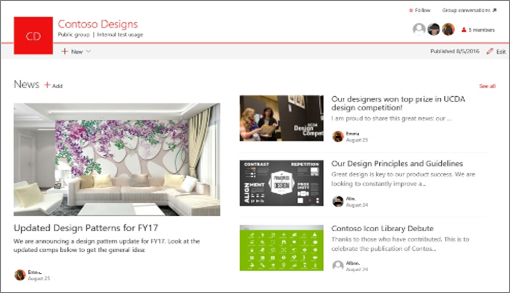About International News Online
About International News Online
Blog Article
Unknown Facts About International News Online
Table of ContentsThe Buzz on International News OnlineOur International News Online Diaries9 Easy Facts About International News Online DescribedThe Single Strategy To Use For International News OnlineExcitement About International News Online
Some social media websites regardless of having fairly tiny general audiences stand out for having high shares of individuals that frequently go to the website for news. On the various other hand, only 15% of Snapchat users consistently get information on the app.
, Sept
When asked whether social media is a great or bad thing for freedom in their country, a mean of 57% across 19 countries claim that it is a good point. In almost every country, close to fifty percent or even more claim this, with the view most common in Singapore, where about three-quarters believe social media is a great point for freedom in their country.
And in the U.S., just around a 3rd think social networks declares for freedom the smallest share among all 19 countries checked. In 8 nations, those that think that the political system in their country allows them to have an influence on politics are likewise a lot more most likely to claim that social media is a good idea for democracy.
Those that watch the spread of incorrect details online as a major risk to their nation are less likely to say that social networks is an advantage for democracy, compared with those who view the spread of false information online as either a minor danger or otherwise a hazard in all.
8 Simple Techniques For International News Online
This pattern is obvious in eight other countries. Sights likewise vary by age. Older grownups in 12 countries are much less likely to say that social media is an advantage for democracy in their nation when compared to their younger counterparts. In Japan, France, Israel, Hungary, the UK and Australia, the space in between the youngest and oldest age groups goes to least 20 percentage factors and ranges as high as 41 factors in Poland, where almost nine-in-ten (87%) more youthful grownups state that social media has actually been a good idea for democracy in the nation and only 46% of adults over 50 say the very same.
Throughout the 6 problems tested, couple of often tend to claim they see no adjustments because of boosted connectivity rather seeing things transforming both positively and negatively and frequently both at the very same time (International News Online). A median of 84% say technological connection has made people much easier to manipulate with incorrect info and rumors one of the most among the six problems examined
In a lot of nations, those that assume social media has actually made it less complicated to adjust individuals with read the full info here false information and reports are also more likely to think that social media has made people more informed. When it concerns national politics, the internet and social networks are generally viewed as turbulent, with a median of 65% saying that individuals are currently extra separated in their political opinions.
International News Online Can Be Fun For Everyone
This feeling of danger is connected to the extensive belief that individuals today are currently much easier to control with false details and reports thanks to the net and social media sites. Around fifty percent or even more in every nation checked shares this view. And in areas like the Netherlands, Australia and the UK, around nine-in-ten see people as even more manipulable.
For instance, in South Korea, 90% of those under age 30 state social networks makes people simpler to control, contrasted with 65% of those 50 and Find Out More older. (Remarkably, U.S.-focused research has located older adults are most likely to share misinformation than more youthful ones.) Individuals with more education and learning are additionally commonly most likely than those with less education to claim that social networks has actually led to people being less complicated to manipulate.

In 2016, for example, in the wake of the united state presidential election, 64% of united state grownups believed completely fabricated news had actually created a great bargain of confusion concerning the fundamental realities of present occasions. At the time, around a third really felt that they frequently encountered political information online that was completely comprised and an additional half claimed they typically encountered information that was not click here to find out more fully precise.
7 Easy Facts About International News Online Explained
In Sweden, Japan, Greece and the Netherlands, around eight-in-ten or even more share this view, while in Malaysia, a smaller sized majority (56%) states the exact same. Younger adults have a tendency to see social media sites making individuals more educated than older adults do. Older adults, for their component, do not always see the web and social networks making people less informed about what's happening in their country; rather, they're somewhat much more most likely to explain these systems as having little impact on people's info degrees.

Report this page